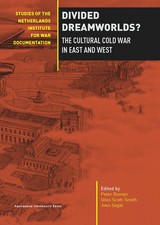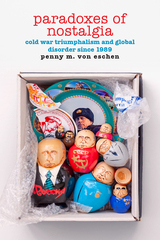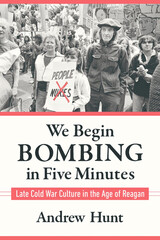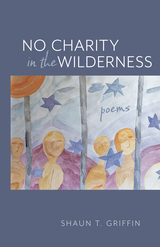3 books about Cold War in popular culture

Divided Dreamworlds?
The Cultural Cold War in East and West
Edited by Peter Romijn, Giles Scott-Smith, and Joes Segal
Amsterdam University Press, 2012
While the divide between capitalism and communism, embodied in the image of the Iron Curtain, seemed to be as wide and definitive as any cultural rift, Giles Scott-Smith, Joes Segal, and Peter Romijn have compiled a selection of essays on how culture contributed to the blurring of ideological boundaries between the East and the West. This important and diverse volume presents fascinating insights into the tensions, rivalries, and occasional cooperation between the two blocs, with essays that represent the cutting edge of Cold War Studies and analyze aesthetic preferences and cultural phenomena as various as interior design in East and West Germany; the Soviet stance on genetics; US cultural diplomacy during and after the Cold War; and the role of popular music as the universal cultural ambassador.
An illuminating and wide-ranging survey of interrelated collective dreams from both sides of the Iron Curtain, Divided Dreamworlds? has a place on the bookshelf of any modern historian.
An illuminating and wide-ranging survey of interrelated collective dreams from both sides of the Iron Curtain, Divided Dreamworlds? has a place on the bookshelf of any modern historian.
[more]

Paradoxes of Nostalgia
Cold War Triumphalism and Global Disorder since 1989
Penny M. Von Eschen
Duke University Press, 2022
In Paradoxes of Nostalgia Penny M. Von Eschen offers a sweeping examination of the cold war’s afterlife and the lingering shadows it casts over geopolitics, journalism, and popular culture. She shows how myriad forms of nostalgia across the globe—from those that posit a mythic national past to those critical of neoliberalism that remember a time when people believed in the possibility of a collective good—indelibly shape the post-cold war era. When Western triumphalism moved into the global South and former Eastern bloc spaces, many articulated a powerful sense of loss and a longing for stability. Innovatively bringing together diplomatic archives, museums, films, and video games, Von Eschen shows that as the United States continuously sought new enemies for its unipolar world, cold war triumphalism fueled the ascendancy of xenophobic right-wing nationalism and the embrace of authoritarian sensibilities in the United States and beyond. Ultimately, she demonstrates that triumphalist claims that capitalism and military might won the cold war distort the past and disfigure the present, undermining democratic values and institutions.
[more]

We Begin Bombing in Five Minutes
Late Cold War Culture in the Age of Reagan
Andrew Hunt
University of Massachusetts Press, 2021
In the moments before his weekly radio address hit the airwaves in 1984, Ronald Reagan made an off-the-record joke: "I've signed legislation that will outlaw Russia forever. We begin bombing in five minutes." As reports of the stunt leaked to the press, many Americans did not find themselves laughing along with the president. Long a fervent warrior against what he termed the "Evil Empire," by the mid-1980s, Reagan confronted growing domestic opposition to his revival of the Cold War. While numerous histories of the era have glorified the "Decade of Greed," historian Andrew Hunt instead explores the period's robust political and cultural dissent.
We Begin Bombing in Five Minutes focuses on a striking array of protest movements that took up issues such as the nuclear arms race, U.S. intervention in Central America, and American investments in South Africa. Hunt's new history of the eighties investigates how film, television, and other facets of popular culture critiqued Washington's Cold War policies and reveals that activists and cultural rebels alike posed a more meaningful challenge to the Cold War's excesses than their predecessors in the McCarthy era.
We Begin Bombing in Five Minutes focuses on a striking array of protest movements that took up issues such as the nuclear arms race, U.S. intervention in Central America, and American investments in South Africa. Hunt's new history of the eighties investigates how film, television, and other facets of popular culture critiqued Washington's Cold War policies and reveals that activists and cultural rebels alike posed a more meaningful challenge to the Cold War's excesses than their predecessors in the McCarthy era.
[more]
READERS
Browse our collection.
PUBLISHERS
See BiblioVault's publisher services.
STUDENT SERVICES
Files for college accessibility offices.
UChicago Accessibility Resources
home | accessibility | search | about | contact us
BiblioVault ® 2001 - 2024
The University of Chicago Press









